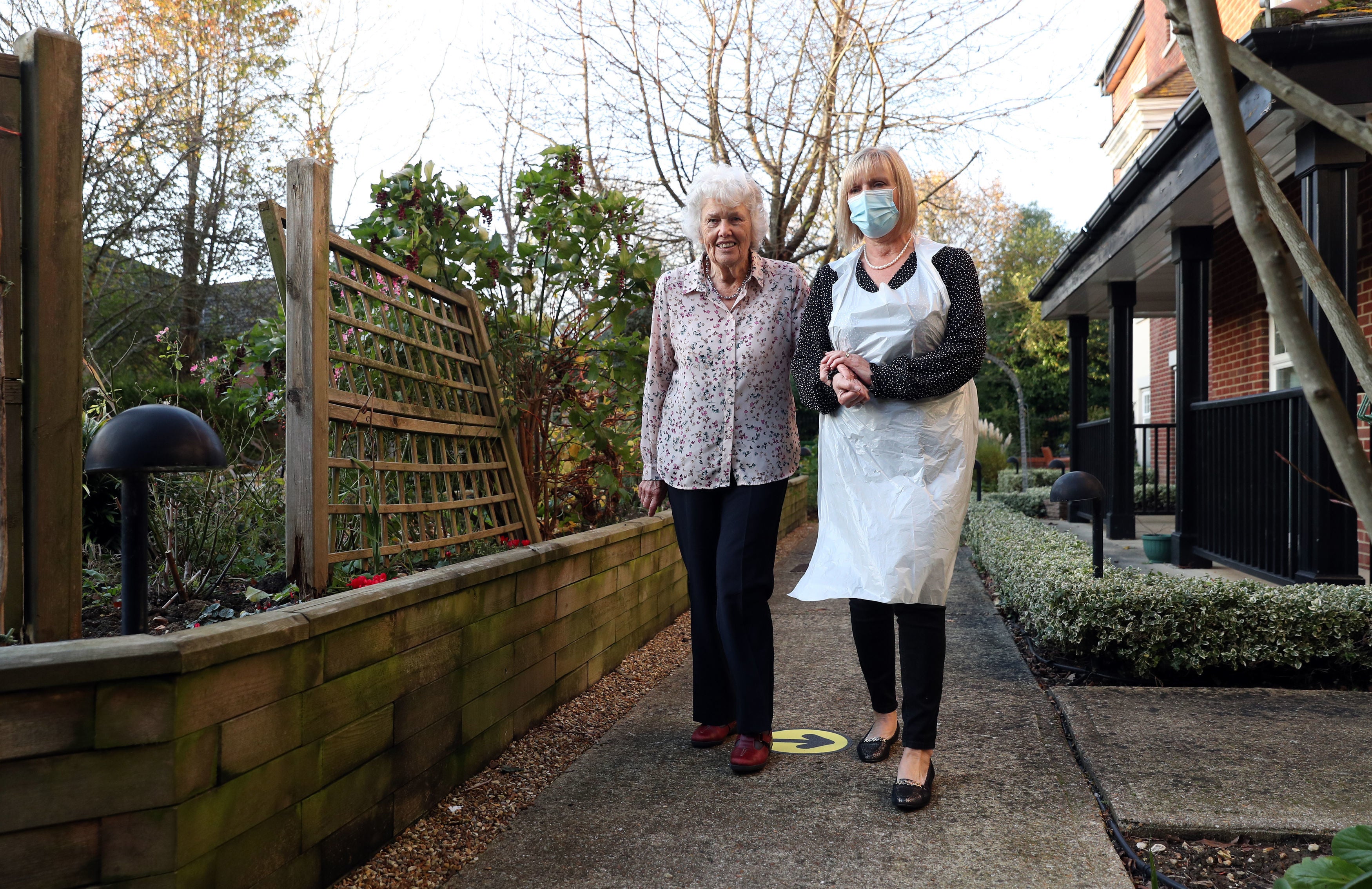Rule forcing care home residents to isolate in their rooms after days out scrapped after protests
Visits to gardens, parks and beaches will no longer be followed by 14 days shut away – after threat of legal action

Strict rules requiring English care home residents to isolate in their rooms for 14 days after returning from days out are being scrapped, after protests.
Ministers have bowed to pressure to end the restriction – which had triggered the threat of legal action – after visits to the gardens of friends or family members, or to parks and beaches.
Boris Johnson said: “We know how challenging this time has been for care home residents, so I am pleased that they can now leave their homes to reunite with their loved ones outdoors.”
The move comes after campaigners attacked the strict need for isolation as a breach of human rights law, arguing there is no scientific justification for it.
John’s Campaign, a group which supports those with dementia, had begun legal action against the Department of Health and Social Care over the 14-day rule.
They also pointed out that anyone in the UK who tests positive for Covid-19, or who flies in from abroad, must quarantine for only ten days.
Helen Whately, the care minister, said: “I know residents and their families have found the restrictions on trips out of care homes incredibly difficult.
“This is one more step towards getting back to normal, while protecting care homes from the continued risk of Covid-19.”
However, the new guidelines make clear that residents leaving a care home must be accompanied by either a care worker or a nominated visitor.
They will not be allowed meet in groups, or allowed to go indoors, except to use the toilet, and must avoid using public transport wherever possible.
There is an exemption for anyone who wants to vote in person in next Thursday’s local and mayoral elections, if they have not arranged a postal or proxy vote.
The other complaint of residents and their relatives is homes that continue to restrict trips out – despite most residents having received both doses of a Covid-19 vaccination.
However, the new guidance will make no change in that area, effectively leaving the decision in the hands of the owners of care homes.
Latest statistics show that 95 per cent of residents have received their first dose of the vaccine and 71 per cent have received their second.
Residents who have tested positive, or who have symptoms of the disease, must self-isolate and would therefore not be able to leave their care home.
In the event of an outbreak, all residents must self-isolate and visits out are suspended to prevent the wider spread of the virus.
Join our commenting forum
Join thought-provoking conversations, follow other Independent readers and see their replies
Comments
Bookmark popover
Removed from bookmarks